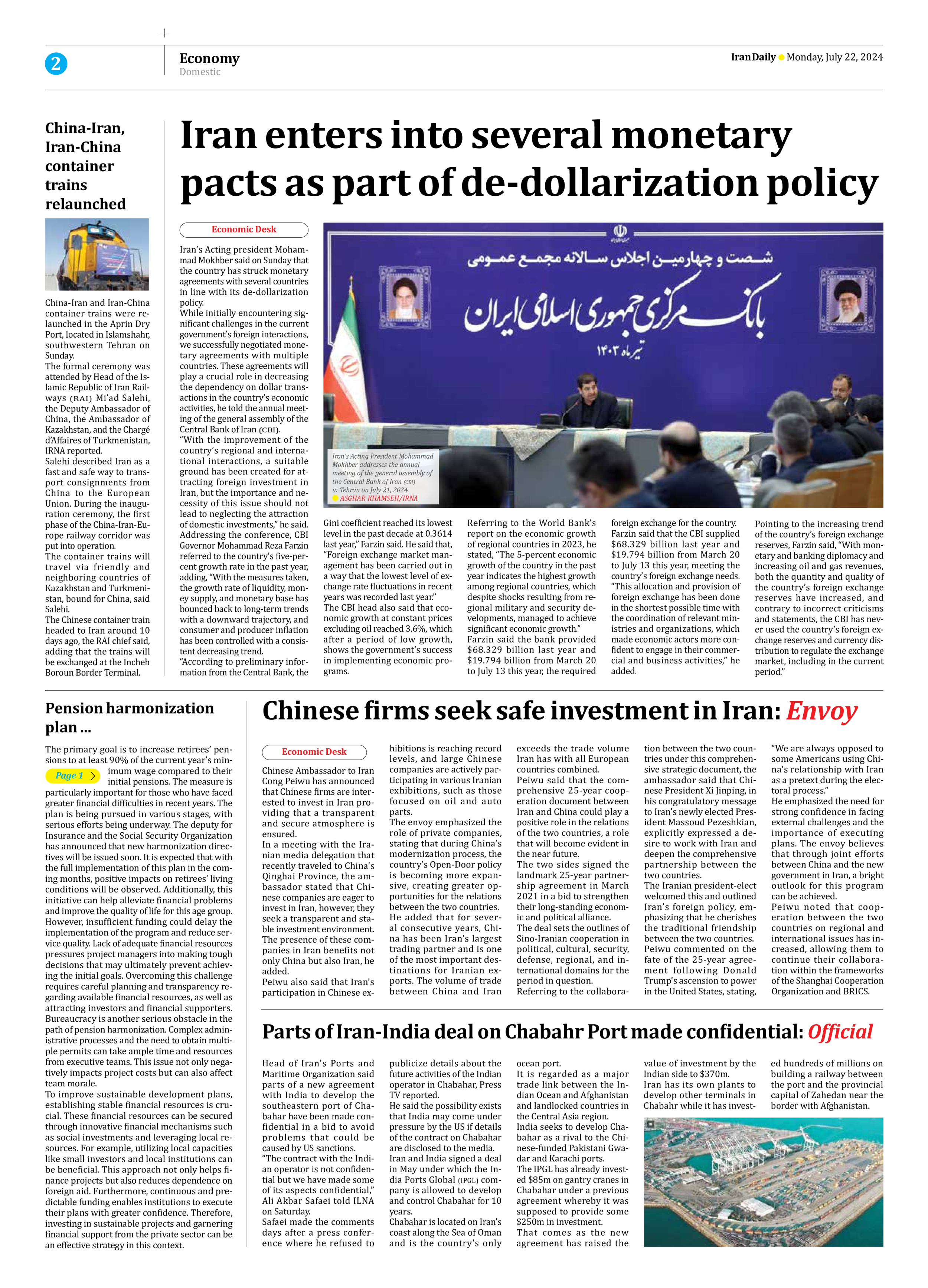
Pension harmonization plan ...
Page 1
The primary goal is to increase retirees’ pensions to at least 90% of the current year’s minimum wage compared to their initial pensions. The measure is particularly important for those who have faced greater financial difficulties in recent years. The plan is being pursued in various stages, with serious efforts being underway. The deputy for Insurance and the Social Security Organization has announced that new harmonization directives will be issued soon. It is expected that with the full implementation of this plan in the coming months, positive impacts on retirees’ living conditions will be observed. Additionally, this initiative can help alleviate financial problems and improve the quality of life for this age group.
However, insufficient funding could delay the implementation of the program and reduce service quality. Lack of adequate financial resources pressures project managers into making tough decisions that may ultimately prevent achieving the initial goals. Overcoming this challenge requires careful planning and transparency regarding available financial resources, as well as attracting investors and financial supporters. Bureaucracy is another serious obstacle in the path of pension harmonization. Complex administrative processes and the need to obtain multiple permits can take ample time and resources from executive teams. This issue not only negatively impacts project costs but can also affect team morale.
To improve sustainable development plans, establishing stable financial resources is crucial. These financial resources can be secured through innovative financial mechanisms such as social investments and leveraging local resources. For example, utilizing local capacities like small investors and local institutions can be beneficial. This approach not only helps finance projects but also reduces dependence on foreign aid. Furthermore, continuous and predictable funding enables institutions to execute their plans with greater confidence. Therefore, investing in sustainable projects and garnering financial support from the private sector can be an effective strategy in this context.







